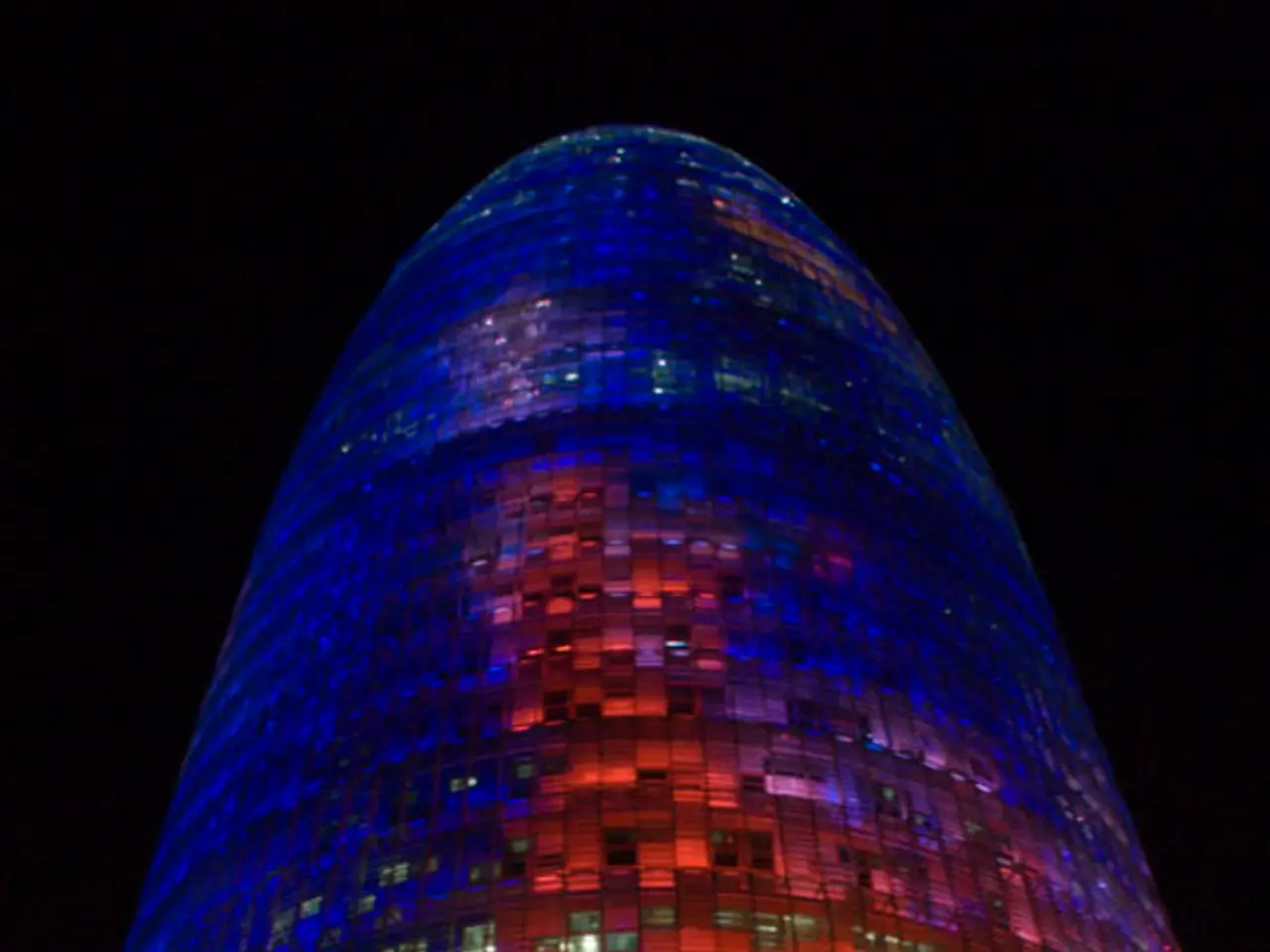Construction-focused circularity thrives in Malmö
Malmö, Sweden, is making significant strides in becoming a model city for sustainable development and carbon reduction. The city's comprehensive approach combines innovative sustainable construction, clean energy transition, eco-efficient urban planning, and collaborative climate adaptation efforts.
At the heart of Malmö's sustainability strategy is Dr Anna Bernstad, the Sustainability Strategist for Malmö Stad Stadsfastigheter. Bernstad is working to pump new life into public procurement by implementing changes that prioritize sustainability and circularity. Her goal is to reduce the climate impact of public building construction.
Malmö is actively addressing climate risks like rising sea levels and intense rains by integrating climate adaptation and resilience into urban planning and infrastructure. The city promotes sustainable growth while preparing its infrastructure for climate change impacts.
One of the key initiatives is the low-carbon port operations by Copenhagen Malmö Ports (CMP). CMP is phasing out fossil fuels by adopting green renewable energy sources such as wind, solar, and biogas. The port has switched to fossil-free fuels for all port machinery and purchases only green electricity to reduce carbon emissions significantly.
The Malmö University Hospital expansion targeted a reduced climate footprint by achieving the Miljöbyggnad silver level environmental certification for new healthcare buildings. This included advanced sustainable construction methods, energy-efficient design, and flexible infrastructure to accommodate greener technologies in the future.
Malmö embraces practical 3R energy strategies — Reduce energy demand, Reuse existing energy, and Renew energy supply with clean sources — borrowing successful models like ProjectZero in Denmark to drive urban energy emission reductions cost-effectively.
Malmö's Sustainable Urban Mobility Plan includes minimum quotas of parking spots for bicycles, priority for cyclists at traffic lights, and bike rental schemes. The city also prioritizes its hybrid biogas-electric Bus Rapid Transit system, which improves customer capacity and reliability.
In terms of waste management, Malmö is investigating the use of biochar as organic fuel from garden and park waste. The city's municipal waste management company is focusing on decreasing the use of fossil fuels and CO emissions. Malmö has an ambitious plan to invest in higher grade plastic recycling and aims to divert emissions from waste combustion equipment through its carbon capture and storage strategy.
Malmö is also exploring new ideas of circularity, such as using movable walls and doors to make workplaces more flexible and efficient. Underused offices in the city can be refurnished, refurbished, or reconstructed to be used as co-living accommodation. The Svävarterminalen, a former hovercraft terminal in Malmö, is scheduled for dismantling, and its heavy load-bearing beams and pillars will be reused in new construction.
Malmö's long-term goal is to run entirely on renewable energy by 2030. The city is piloting new technology for carbon capture and storage that is more energy-efficient than current technologies. Anna Bernstad, the Sustainability Strategist, has even authored a book on sustainable waste management.
Malmö's traders of virgin building materials are expanding their supply to include reused resources. The city is facilitating open dialogue with consultants, architects, constructors, suppliers, and local entrepreneurs to understand the demand for change and prepare the construction chain for the changes ahead.
Malmö's municipal waste management company is focusing on decreasing the use of fossil fuels and CO emissions. Parking cars in Malmö is expensive compared to other options, encouraging residents to use more sustainable modes of transportation.
Malmö's comprehensive approach to sustainability, combined with its leadership in carbon reduction, makes it a beacon for other cities looking to create greener, more resilient urban environments.
[1] Malmö's official website: https://www.malmo.se/ [2] Malmö Stad Stadsfastigheter: https://www.malmostad.se/ [3] Copenhagen Malmö Ports: https://www.cmport.com/ [4] Malmö University Hospital: https://www.mau.se/ [5] ProjectZero: https://project-zero.dk/en/
- Environmental science plays a crucial role in Malmö's quest to become a model city for sustainable living and carbon reduction, as they implement changes that prioritize sustainability and circularity, particularly in public procurement, public building construction, and waste management.
- The city's home and garden sector is also partaking in sustainable living practices, as they are investigating the use of biochar as organic fuel from garden and park waste to decrease the use of fossil fuels and CO emissions.
- In promoting environmental science and sustainable living, Malmö is making strides in climate-change adaptation, integrating climate change mitigation strategies into urban planning and infrastructure, and striving towards running entirely on renewable energy by 2030.




